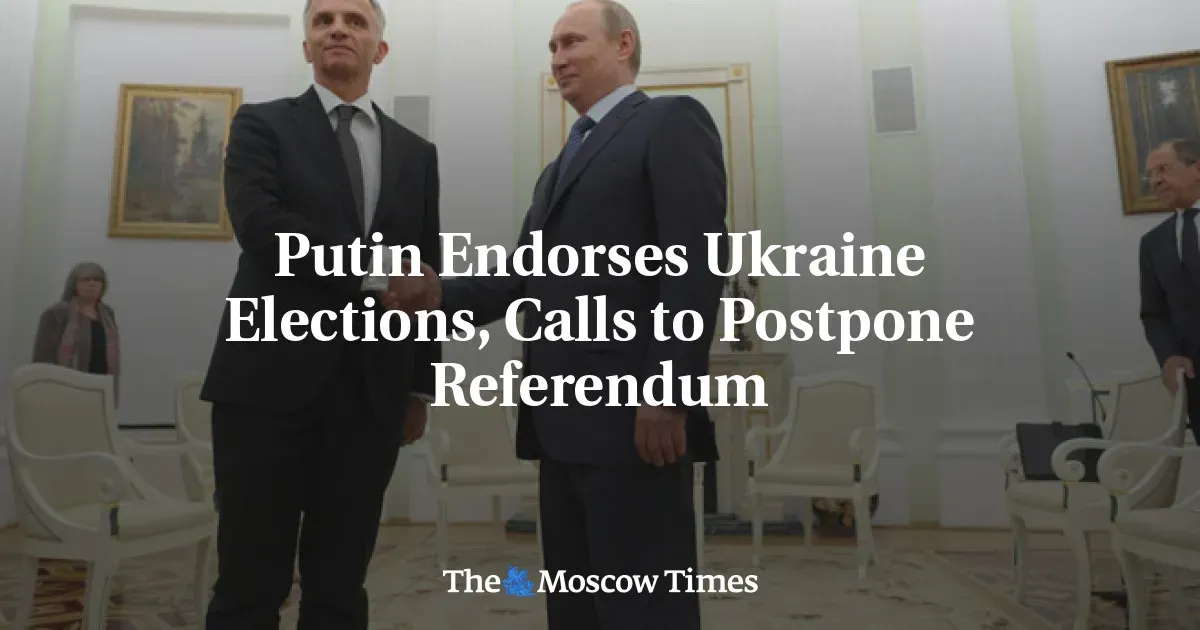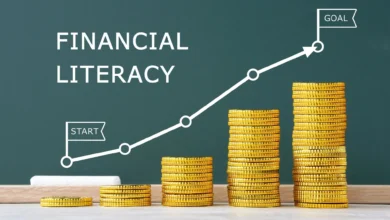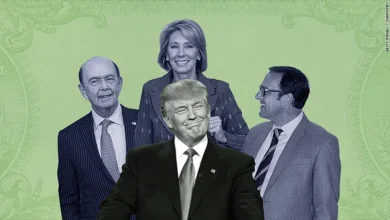Ukraine Elections Postponed: Martial Law Extended Until 2025

Ukraine elections postponed due to the ongoing martial law and general mobilization, which have drastically altered the electoral landscape of the nation. The Verkhovna Rada is set to vote on extending these measures until August 6, 2025, delaying any prospect of electoral campaigning once again. According to political analyst Oleg Posternak, the postponement of elections in Ukraine may lead to significant ramifications for the country’s democratic processes. As the conflict continues, the logistical challenges around organizing a safe electoral process become increasingly complex. The upcoming session on April 15 will be crucial in determining not only the fate of elections but also the future direction of governance in Ukraine.
The recent decision to delay electoral proceedings in Ukraine emerges in a climate of uncertainty marked by extended martial law and active military mobilization. This development calls into question the future of democracy within the nation, as citizens await clarity on when the Verkhovna Rada elections can safely convene. The specter of postponed elections looms over the political atmosphere, with implications for governance and public engagement. As discussions continue, many are left wondering how long the situation will persist and what it means for civic participation in the democratic process. Awareness of these developments is crucial for understanding the evolving political landscape in Ukraine.
Understanding the Impact of Ukraine’s Martial Law on Elections
Ukraine’s martial law has significant implications for the democratic process within the country. As tensions escalate due to ongoing conflicts, the government’s primary focus is on national security, leading to delays in crucial electoral activities. The Verkhovna Rada elections, which serve as a cornerstone of Ukraine’s democratic framework, have been postponed as the military situation evolves. The delays hinder the political landscape, and citizens find themselves in a state of uncertainty about their democratic rights and the timeline for potential elections.
As reported, the extension of martial law will push back the electoral process even further, impacting both the presidential and Verkhovna Rada elections. With the electoral processes taking a minimum of 60 and 90 days respectively, it becomes clear that adequate time for organization and voting is absent under the current conditions. Experts, including political technologist Oleg Posternak, estimate that while the potential for elections increases with each passing month, the safety and security must first be addressed before logistical considerations can even begin. This scenario underlines the complexities of administering elections amid such turbulent conditions.
Postponed Elections in Ukraine: What Lies Ahead?
The recent announcement regarding the postponed elections in Ukraine has raised numerous questions among citizens and political analysts alike. With the Verkhovna Rada slated to vote on the continuation of martial law on April 15, the fate of the electoral timeline appears even more precarious. Speculations abound about when Ukraine will be able to conduct elections again, particularly in light of external pressures and the nation’s ongoing military engagements. It is essential for the government to clarify its position and outline a strategy for a safe return to democracy, as organizational preparations are currently stalled.
Moreover, the interactions between Ukraine’s political landscape and international stakeholders play a pivotal role during these tumultuous times. As the situation evolves, the commitment of the Ukrainian government to uphold democratic values will be tested. The head of the President’s Office, Andriy Yermak, has already dismissed rumors of elections as soon as this summer, emphasizing that stability and a conclusion to the current conflict are prerequisites. This cautious approach aligns with global expectations that Ukraine must prioritize its security needs before transitioning back to electoral processes.
The Role of General Mobilization During Ukraine’s Elections
General mobilization in Ukraine serves as a critical measure that directly affects the country’s ability to conduct elections. With military forces actively engaged in various regions, the government prioritizes defense and safety over electoral logistics. The impact of general mobilization extends beyond merely delaying elections; it creates an atmosphere where civic participation is severely limited, and the risk of organizing safe voting procedures is heightened. Such conditions make it incumbent upon political leaders to manage public expectations while ensuring that normalcy in governance can be restored as soon as feasible.
Additionally, the intersection of general mobilization and electoral readiness is a topic of concern among experts. While the legislative framework allows for extensions of martial law, the accompanying general mobilization complicates the picture. Without the necessary infrastructure in place to safeguard an electoral process, the timeline for any elections remains unclear. Political technologist Oleg Posternak highlights this dynamic, suggesting that a return to peace may rekindle discussions about the electoral timeline, but caution must remain at the forefront of decision-making processes until safety can be ensured.
Future Prospects of Elections in Ukraine Post-Martial Law
As Ukraine navigates the challenges posed by extended martial law, the future of its elections remains a subject of intense speculation. The government, while prioritizing national security, must also consider the aspirations of its citizens for democratic representation. With martial law projected to last until August 6, 2025, potential timelines for the resumption of electoral processes are being examined closely. While there is optimism about future elections, the reality is that without peace, the political landscape remains fraught with uncertainty.
The discussion surrounding potential election dates reinforces the need for clear communication from government officials. Citizens expect transparency and timely updates, especially as the Verkhovna Rada prepares to vote on crucial issues. Key political figures, like Oleg Posternak, emphasize the importance of public discourse and engagement in determining the next steps forward. Ultimately, restoring electoral integrity will be vital for Ukraine’s path towards normalized governance and re-established trust in its democratic institutions.
Political Insights on Ukraine’s Election Delays
Political analysts are grappling with the implications of postponed elections in Ukraine, especially as the country faces an ongoing military conflict. The delay in the political process affects not only the immediate governance but also public sentiment about the future. Concerns about legitimacy arise as the government extends martial law and general mobilization, prompting questions about the electoral process’s integrity. Analysts argue that these political maneuvers, while necessary for security, must eventually lead to a restoration of democratic traditions to maintain public trust.
Oleg Posternak, a recognized political technologist, provides critical insights regarding the situation. He notes that while the likelihood of elections is indeed growing, it is contingent on the successful resolution of ongoing military actions. Public confidence in state institutions hinges upon the government effectively communicating its strategies and timelines. Engaging citizens in the political realm is essential, and delaying elections indefinitely risks alienating the very electorate the government aims to serve, thus necessitating a balance between security concerns and democratic obligations.
Legal Framework Surrounding Ukraine’s Delayed Elections
The legal framework in Ukraine concerning elections is being tested under the current conditions of prolonged martial law. The Verkhovna Rada is tasked with navigating complex legislative processes while addressing the immediate implications of national security. The law specifies timelines for electoral proceedings; however, these are predicated on a return to normal operating conditions. The ongoing legal discussions surrounding the postponed elections reflect tensions between adherence to democratic principles and the exigencies of war.
Moreover, the intersection of law and politics underscores the critical need for robust discourse on electoral governance in Ukraine. As civic engagement remains suppressed due to martial law and general mobilization, lawmakers face the dual challenge of upholding legal standards while responding to the realities of their security environment. Understanding the legal dimensions of these delays is vital for stakeholders aiming to restore electoral processes in a manner that is both lawful and reflective of the citizenry’s will.
International Reactions to Ukraine’s Election Postponements
The international community has been closely monitoring the developments surrounding Ukraine’s postponed elections, offering varied responses shaped by geopolitical interests. The delay in electoral processes raises concerns among foreign allies regarding the stability of Ukraine’s democracy amid ongoing military challenges. As the Verkhovna Rada discusses extending martial law, the implications for international relations are significant, especially regarding foreign aid and support initiatives aimed at stabilizing Ukraine.
Countries with vested interests in Ukraine’s political fate emphasize the importance of public representation and democratic governance. The contradiction between martial law and electoral rights poses a challenge to external diplomatic relations, as international stakeholders advocate for a swift return to peace and democratic normalcy. The diplomatic discourse reflects broader issues surrounding human rights and governance during conflict, further complicating Ukraine’s journey towards electoral renewal as the nation seeks to balance internal security with international obligations.
The Influence of External Parties on Ukraine’s Electoral Timeline
In the context of postponed elections, external parties, including foreign governments and international organizations, play a pivotal role in shaping Ukraine’s electoral landscape. The ongoing conflict has drawn attention and support from various international entities, each influencing the potential timeline for elections. As pressures mount from allies advocating for democratic processes, Ukraine’s leaders face the delicate task of balancing these external expectations with domestic realities.
The influence of external parties is particularly evident in discussions around military support and humanitarian aid, which often come tied to conditions pertaining to political reforms and electoral readiness. Ukraine must navigate these relationships carefully to ensure that it can rebuild its governance structures post-conflict. Providing transparency and demonstrating a commitment to future elections are crucial for maintaining favorable relations with international partners and for fostering a stable environment conducive to democratic processes.
Citizen Engagement Amidst Postponed Elections in Ukraine
Citizen engagement remains a critical component of Ukraine’s political dynamics, particularly in light of the ongoing postponement of elections. The government’s actions, including extending martial law, have created palpable unrest among the populace, who seek clarity over their electoral rights. With the absence of a definitive timeline for elections, civic groups and activists are mobilizing efforts to keep public discourse alive and ensure that citizens remain informed and engaged.
Activists are leveraging social media and community platforms to foster dialogue about the electoral process and hold the government accountable. This grassroots movement serves as a vital link between citizens and their representatives during a time of uncertainty. The push for engagement is essential not only for preserving democratic principles but also for reinforcing social cohesion in a context where national unity is paramount, amidst the challenges of martial law and armed conflict.
Frequently Asked Questions
Why are the elections postponed in Ukraine?
Elections in Ukraine have been postponed due to the extension of martial law and general mobilization until August 6, 2025. The Verkhovna Rada is set to vote on this extension, which will impact the electoral timeline, making it impossible to conduct elections safely amidst ongoing conflict.
How does martial law affect the postponed elections in Ukraine?
The martial law in Ukraine directly affects postponed elections by prohibiting the electoral process during times of war. The extension of martial law means that the electoral campaign activities cannot commence, pushing the elections to a later date when the situation is deemed safe.
What is the timeline for the postponed elections in Ukraine announced by the Verkhovna Rada?
The timeline for postponed elections in Ukraine will be determined after the parliamentary vote on April 15 regarding the continuation of martial law. Depending on the outcome, the elections could be delayed significantly, with a possible new date not anticipated until after August 6, 2025.
When can Ukrainians expect to see elections after the martial law extension?
Given the current extension of martial law until August 6, 2025, Ukrainians should not expect elections to occur immediately after this date. The electoral process for the Verkhovna Rada requires at least 90 days to prepare, indicating that elections would likely not be held until late 2025 at the earliest.
What does Oleg Posternak say about the likelihood of elections in Ukraine?
Political technologist Oleg Posternak believes that the likelihood of holding elections in Ukraine increases each month, but emphasizes that the war must first conclude. Without a stable environment, organizational preparations for elections remain absent, leading to continued postponement.
Is there any preparation for the postponed elections in Ukraine?
Currently, there are no organizational preparations for the postponed elections in Ukraine. The ongoing martial law and the unsafe conditions preclude any election activities from taking place until a more secure situation is established.
What factors are contributing to the postponement of elections in Ukraine?
Key factors contributing to the postponement of elections in Ukraine include the extension of martial law, the ongoing general mobilization, safety concerns, and the need for a stable geopolitical environment to facilitate a fair electoral process.
Will elections be planned during the ongoing conflict in Ukraine?
No, elections will not be planned during the ongoing conflict in Ukraine. The President’s Office has stated that no organizational efforts for elections are being made due to the unsafe conditions created by the war, emphasizing that the conflict must be resolved first.
| Key Point | Details |
|---|---|
| Verkhovna Rada Vote | The Verkhovna Rada will vote on the continuation of martial law on April 15. |
| Extension of Martial Law | Martial law and general mobilization will be extended until August 6, 2025. |
| Impact on Elections | All electoral campaigns are postponed due to the extended martial law. |
| Timeline of Martial Law | The new extension adds 90 days, making it effective from the previous end date of martial law. |
| Election Timeline | Presidential elections require a 60-day process, while Verkhovna Rada elections require 90 days. |
| Official Statement | The President’s Office stated that organizational preparations for elections are currently not feasible. |
Summary
Ukraine elections postponed once again as martial law continues to be in effect in the country. The Verkhovna Rada’s vote on April 15 regarding the extension clearly indicates the ongoing challenges facing the nation. As the current martial law has been extended until August 6, 2025, any potential for conducting elections will depend on the war’s progress and safe conditions for electoral processes. Organizational preparations for elections are not being made at present, underscoring the complexities of holding democratic processes in such turbulent times.




